'I swear I'm on the team': The inner game of being a backup NHL goalie
It's a strange time for NHL goaltending.
The league-average save percentage has dropped from .915 to .904 over the past 10 years. Teams are allocating fewer salary-cap dollars to the position. Starters' workloads have been reduced as splitting crease time has become the norm. A few teams are strategically carrying three goalies on their NHL roster.
High-pedigree, workhorse goalies have weathered this instability. General managers and coaches still value elite performance over long stretches, and roughly 10 starters - Andrei Vasilevskiy, Connor Hellebuyck, Ilya Sorokin, Juuse Saros, and Thatcher Demko, to name a handful - can provide just that.
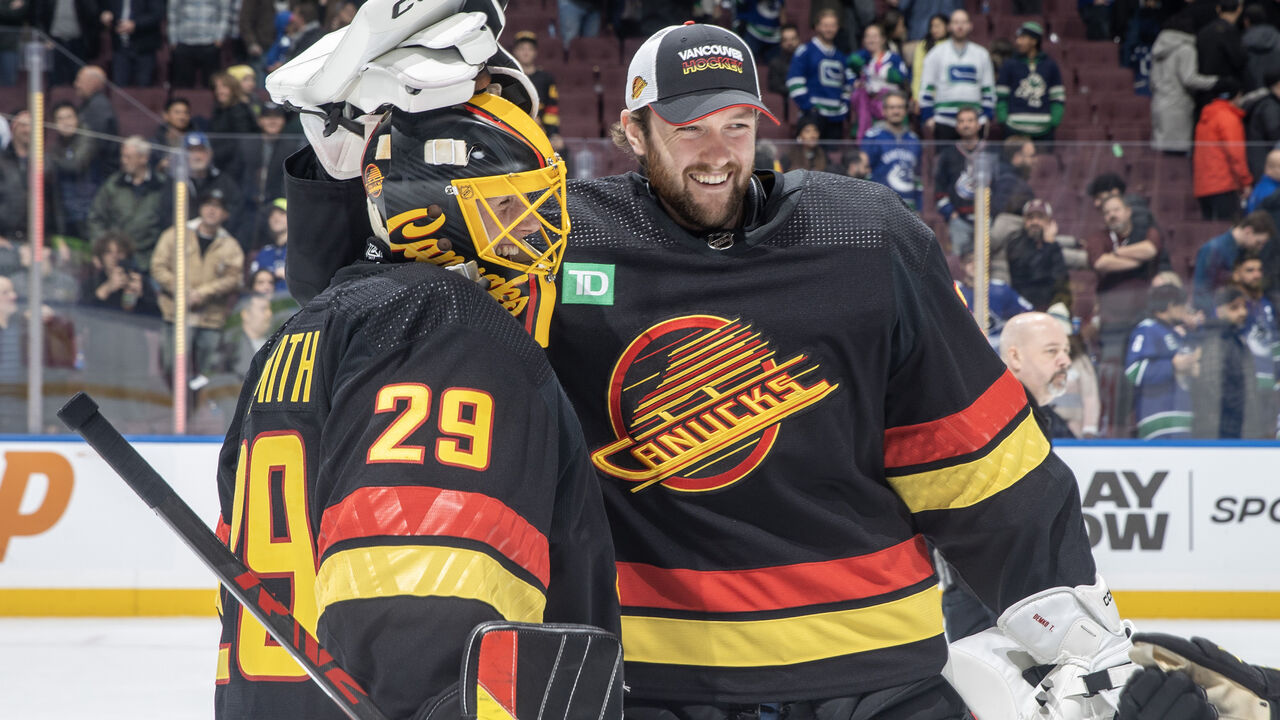
Another way to carve out a niche is to become a career backup. First and foremost, the backup must give his team a chance to win when his number's called. The rest of the role is largely between the ears. "You have to find a way to become a supportive partner to somebody who has the job you always dreamed of," is how private goalie trainer Adam Francilia recently put it.
"Most people probably don't understand how difficult it is - mentally, emotionally, physically - to master the career-backup role," added Francilia, who works with a dozen NHLers, including star No. 1s and veteran No. 2s.
Let's unpack this inner game of being an NHL backup.
'Shit end of the stick'
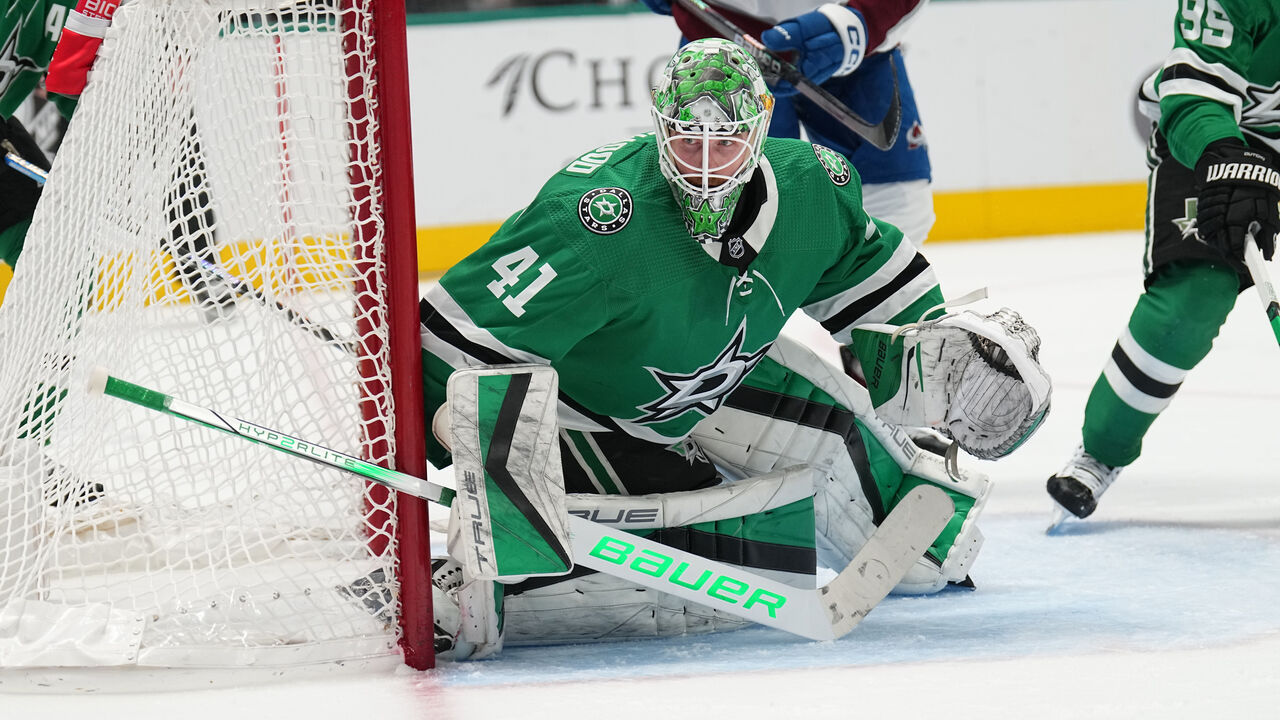
Scott Wedgewood, the Stars' backup the past two seasons, broke into pro hockey in 2012 and spent a decade accumulating 49 ECHL, 190 AHL, and 69 NHL games as a member of five organizations. He was the definition of a journeyman and still would be if not for a few enlightening interactions.
The first came in 2017 when a Devils official informed Wedgewood that top prospect Mackenzie Blackwood would be prioritized over him in the AHL. This hinted at two impacts: fewer starts and worse odds of getting an NHL call-up.
"What the f--k? I'm the guy to go up!" Wedgewood recalled of his initial reaction to the Devils' plan. He then held the team's decision against Blackwood, even though it wasn't Blackwood's fault. Weeks later, Wedgewood was traded to Arizona for a fifth-round draft pick.
Wedgewood and Blackwood again became partners for New Jersey in fall 2020 - this time as NHLers. Blackwood immediately noticed a difference in Wedgewood's demeanor. He'd learned to stop riding the daily highs and lows.
"I didn't mean to be rude back then. It just felt like my chance was being taken away," Wedgewood said. "You have to take a look in the mirror at some point, and I'm better for doing that. Blackwood and I are good now. But I hate that at first maybe he didn't love me as a partner. That's completely on me."
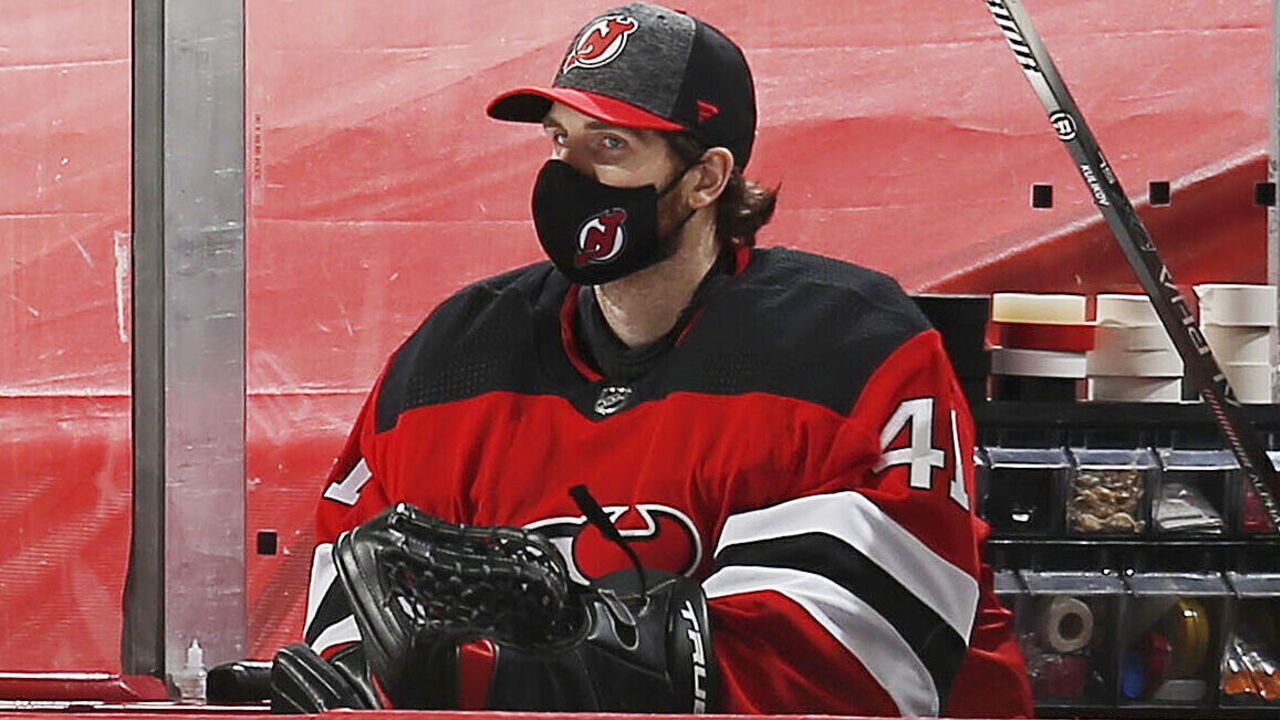
One thing that hasn't changed over Wedgewood's career: Backups live a privileged, private jet-flying lifestyle, but they also "get the shit end of the stick."
Typically, the No. 2 guy starts the second game of back-to-back sets, the last game of long road trips, and groggy afternoon games. The backup tends to be left in the net regardless of the score. He's peppered with pucks in practice. Optional skates are not optional for him. Anything to rest the starter.
On the surface, it can look like the backup is being set up to fail. The magic is in how they reckon with all of these unglamorous responsibilities, which still have to be fulfilled no matter how the other facets of their life are going.
"You can sit there and create a picture of the toughest week of your life," Wedgewood said. "You had bad sleep, you didn't get a good workout in, the food wasn't cooked properly for your pregame meal, whatever. You can get all of this in your head and it's negative, negative, negative. What do you think's going to happen? You're going to be frustrated when you get on the ice."
Wedgewood said Scott Clemmensen, who made a 12-year career out of being a low-maintenance backup for Martin Brodeur and other high-volume starters, once offered him sage advice: Extend your runway in the best league on the planet by being pleasant to be around. Simply be a good guy.
"Are they a reluctant backup or a welcoming backup?" Francilia said of a question he often ponders and sometimes asks his clients to consider, too.
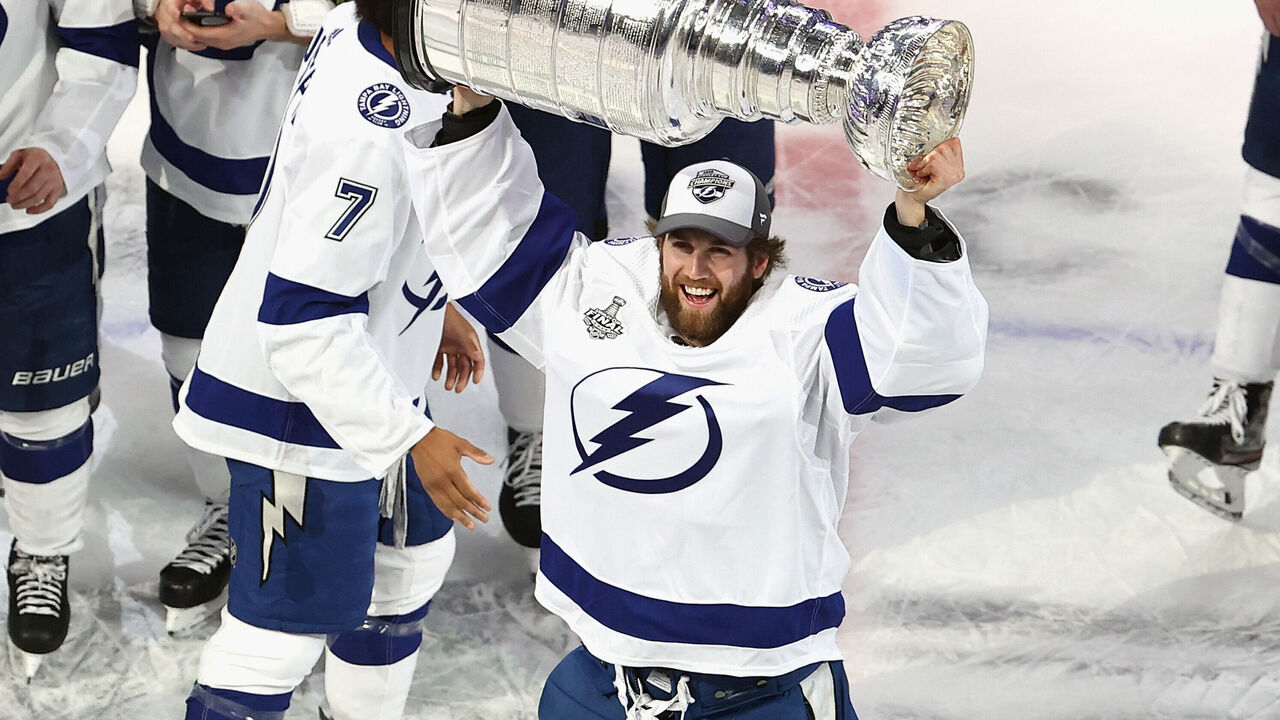
The 2020 postseason bubble brought Wedgewood closer to the "welcoming" label. He manned the crease nearly every day for two months straight so the Lightning's scratched skaters could stay sharp, one time vomiting due to exhaustion. He stood in front of countless Steven Stamkos shots before the captain's thrilling comeback goal in the Stanley Cup Final - and it didn't go unnoticed.
"One of my favorite memories of my entire hockey career came after we won. We took the Cup back up to our meal room and Frantz Jean, the goalie coach, came over to me," Wedgewood recalled. "Tears in his eyes, Frantz told me I never complained. He told me I helped Stammer get back to a good place."
At 31, Wedgewood's still fine-tuning his outlook. He works with independent high-performance coach Eric Hoffberg and Stars mental skills consultant Chad Bohling to attack the backup role with enthusiasm, purpose, and pride.
Wedgewood arrived in Dallas in March 2022 and was driven to play his best hockey. Yet he went out of his way to tell Jake Oettinger that he wasn't trying to steal the No. 1 job. He signed a two-year, one-way contract that offseason - security, finally. And this season, with Oettinger struggling and battling injury, Wedgewood will finish with the second-most minutes played of his career.
'Control what you can control'
It's 12:42 p.m. on a Tuesday in late March and Eric Comrie is standing in the hallway connecting the Sabres' dressing room to the KeyBank Center ice.
He's in full gear, his mask is resting on the top of his head, and he's flashing a wide grin Sabres fans know well. Practice began 102 minutes ago, his teammates are long gone, but it's only now that Comrie is starting to unwind.
One of three goalies on Buffalo's roster for most of the season, Comrie has logged 460 minutes in the NHL - the equivalent of 7.7 60-minute games - plus four full AHL games in 2023-24. I asked him how he's managed to stay sane with such limited game action over a stretch approaching six months.
"You just try to keep getting better every single day. Just try to work on little things and try to stay in the moment as best you can," Comrie, 28, said.
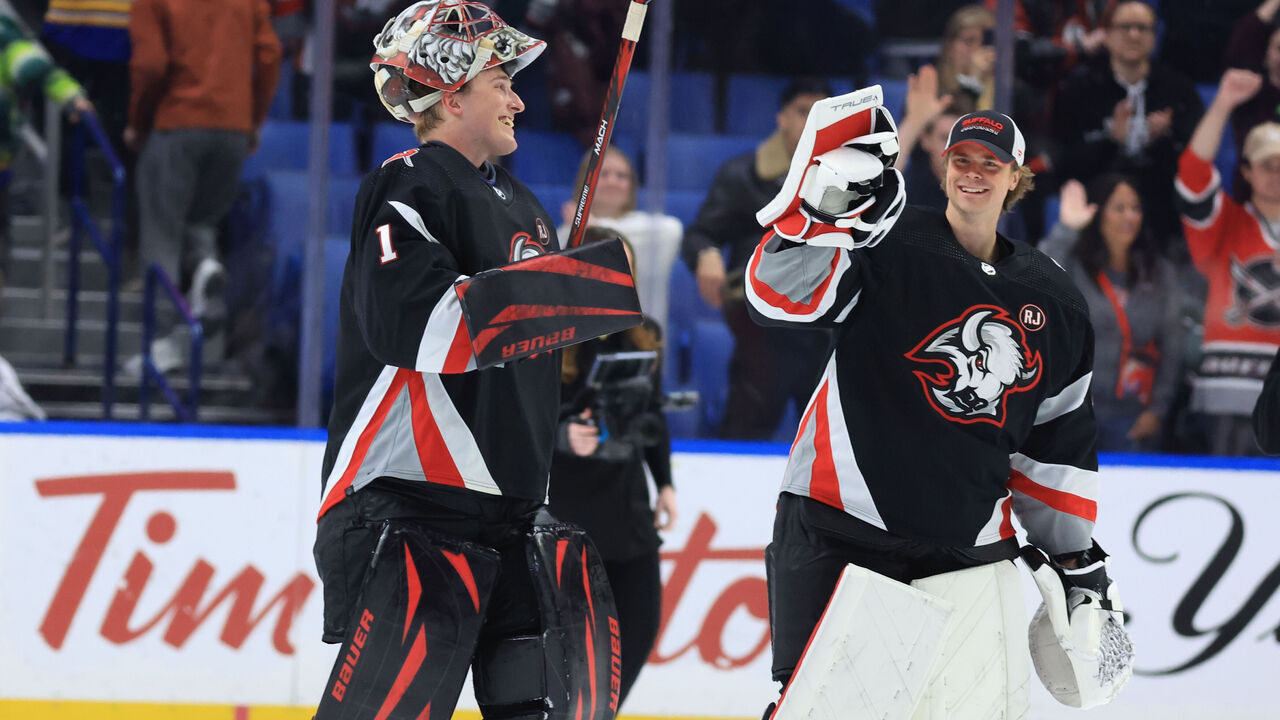
He added that his goal in practice was to keep his heart rate up and work on glove placement and stance adjustments. He had plans later in the day to study video assistant coach Mike Bales captured during certain drills.
Comrie, whose season was sidetracked in late October thanks to a minor injury, last started for the Sabres on March 7, and Feb. 15 before that. Those are his lone NHL appearances in 2024. The Sabres have leaned heavily on 25-year-old Ukko-Pekka Luukkonen (29 starts in 2024) while sprinkling in 22-year-old Devon Levi (six starts). Both have long-term starter potential.
"The three-goalie rotation sucks. Anyway you can put it - it just sucks," said Comrie, a pending unrestricted free agent. "Ask any goalie, they don't like it because you lose rhythm, you lose reps, you lose different things."
It's essential for goalies in Comrie's situation to separate the supportive aspects of the role (which by all accounts Comrie excels at) and the personal development element. Getting the most out of every day has to be the objective.
"You can only control what you can control," Comrie said.
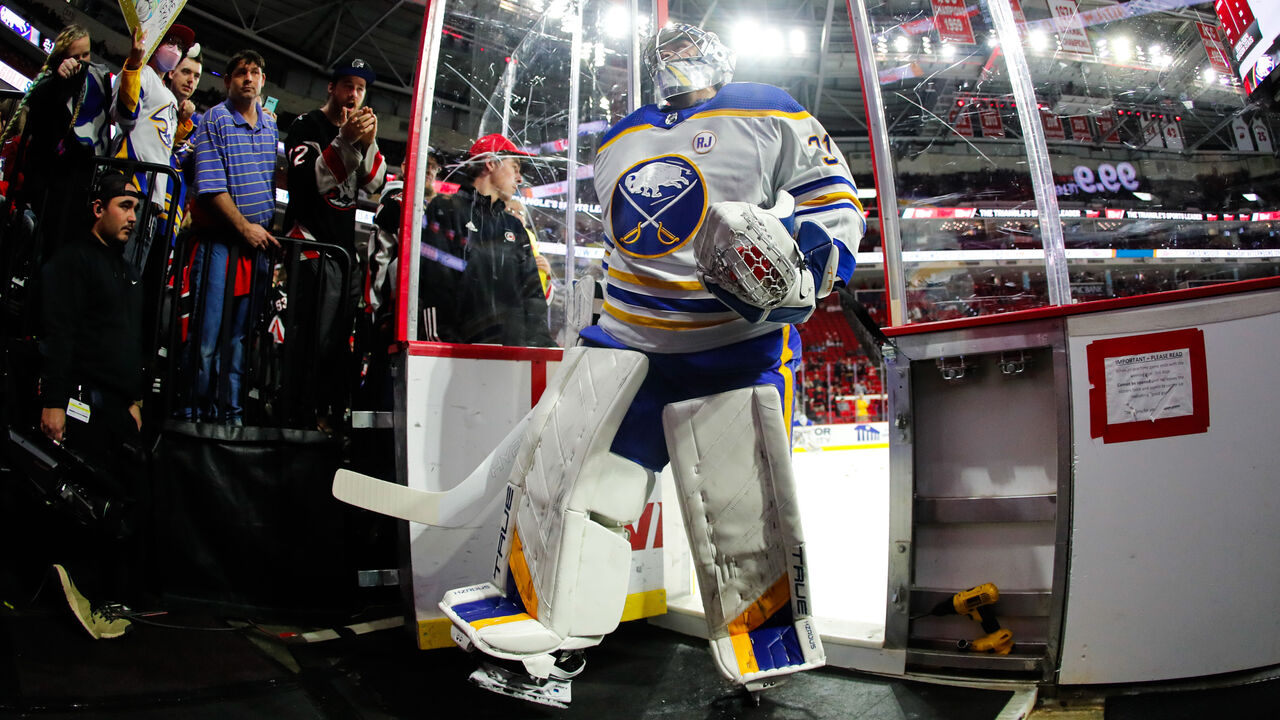
Logan Thompson of the Golden Knights can relate. He started 17 games in 2021-22, 36 last season, and he is up to 37 this campaign. Those workloads, which have been influenced by injuries, have often put him in backup mode.
Thompson becomes "more of a cheerleader" on days partner Adin Hill is starting. He'll stay out longer at the morning skate, stay out of Hill's way before the game to avoid being a distraction, and stay dialed into each shift.
"Me and Hillsy will talk at the bench during breaks. I'll let him know what I'm seeing," said Thompson, an undrafted 27-year-old. "I'll try to get into his mind and dissect the game a little bit, do whatever I can do to help him out there."
'I swear I'm on the team'
Carter Hutton couldn't help but share the absurdity every once in a while.
"I swear I'm on the team," he'd quip in a midgame text message to buddies from his hometown of Thunder Bay, Ontario. Accompanying the text was a photo of Hutton, the visiting backup with no seat on or near the bench, sitting in the dressing room alone, geared up, with one hand buried in a giant popcorn bag.
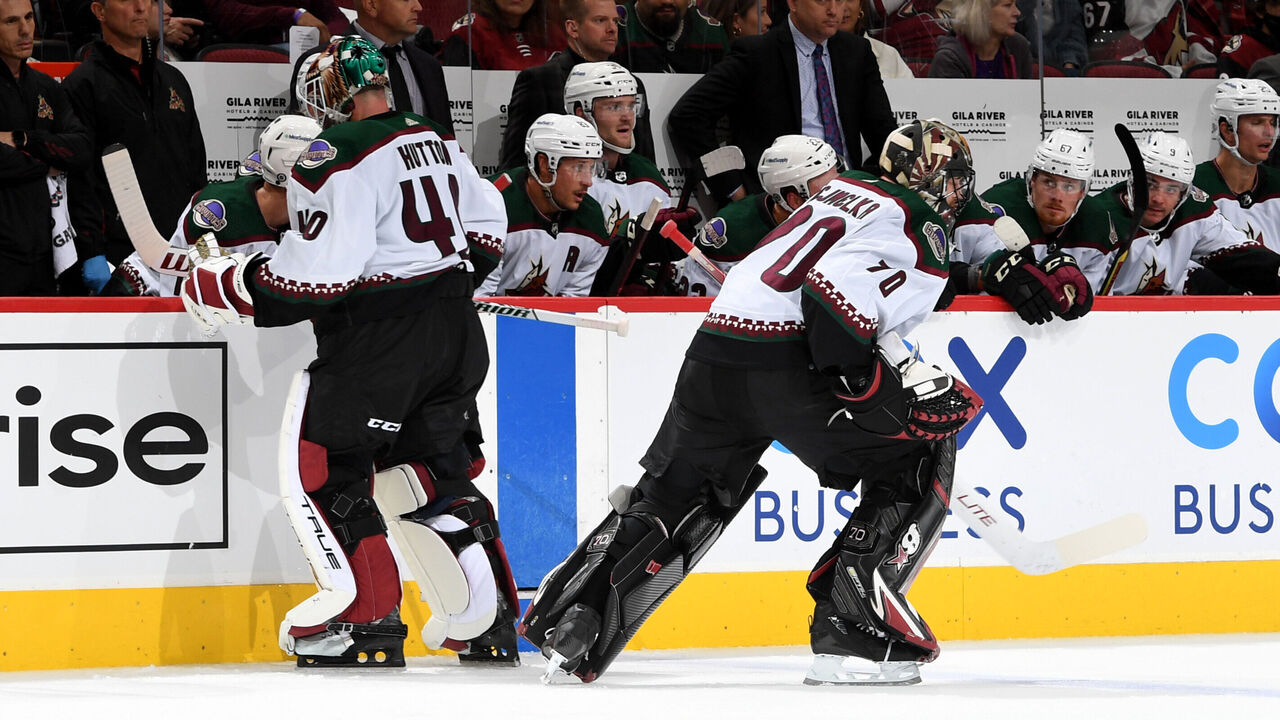
Hutton, who retired in 2022 after a 10-year run with five different NHL teams, found it relatively easy to embrace the backup life. He wasn't a star player growing up and went through a phase of imposter's syndrome at each level. His ability to adapt to his surroundings and see the big picture mixed well with regularly sitting on a stool and wearing a baseball cap.
"I felt like I had conquered those demons at lower levels," Hutton said. "So I was able to feel grateful for every opportunity that came along in the NHL."
Not every netminder is wired like Hutton. Accepting one's place in the goaltending hierarchy can require mental jiu-jitsu. On one hand, trainer Francilia explains, the goalie must be realistic about his trajectory and adjust expectations accordingly. On the other, he can't stop working on his craft.
"There's a pivotal moment in these guys' careers, where they realize what they've become," Francilia said. "It's a sensitive topic. You can have this existential discussion with them, but you don't want them to just give up."
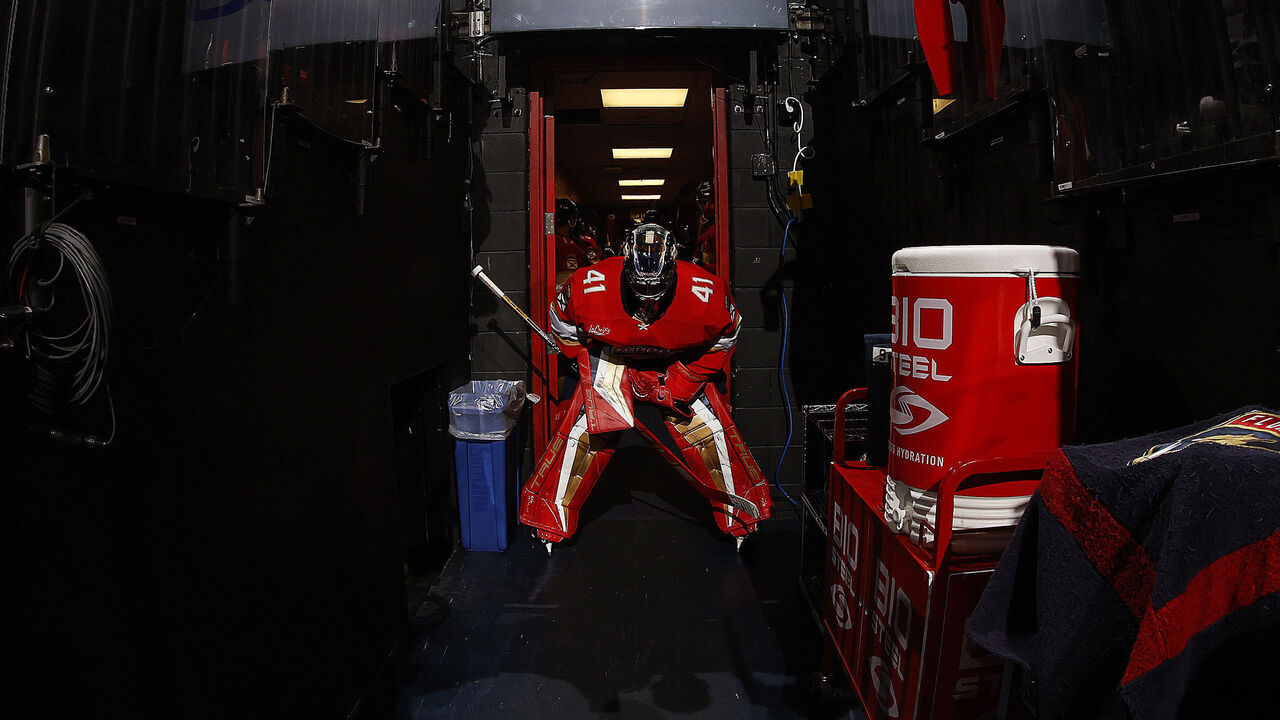
Every goalie's personal journey is unique. But as a general rule, if by 30 a goalie hasn't held down a No. 1 job for an extended period, the chances are slim that a full-time starter's role is in their future. Time to let go of the dream.
"Take that extra bit of pressure, which has now become a detriment to you," Francilia will tell clients, "and redirect that emotional, mental, and psychological energy into more fruitful gain. Pour it into your goaltending. Pour it into genuine, real, non-toxic support for your partner."
Red Wings goalie James Reimer, who works with Francilia, is one game shy of 500, a mark only 79 other goalies in history have reached. Incredibly, the 36-year-old has never made more than 48 appearances in a season.
Recently retired Brian Elliott, with 543 career games, and Curtis McElhinney, 249, count as others who accepted their fate and ran with the backup role.
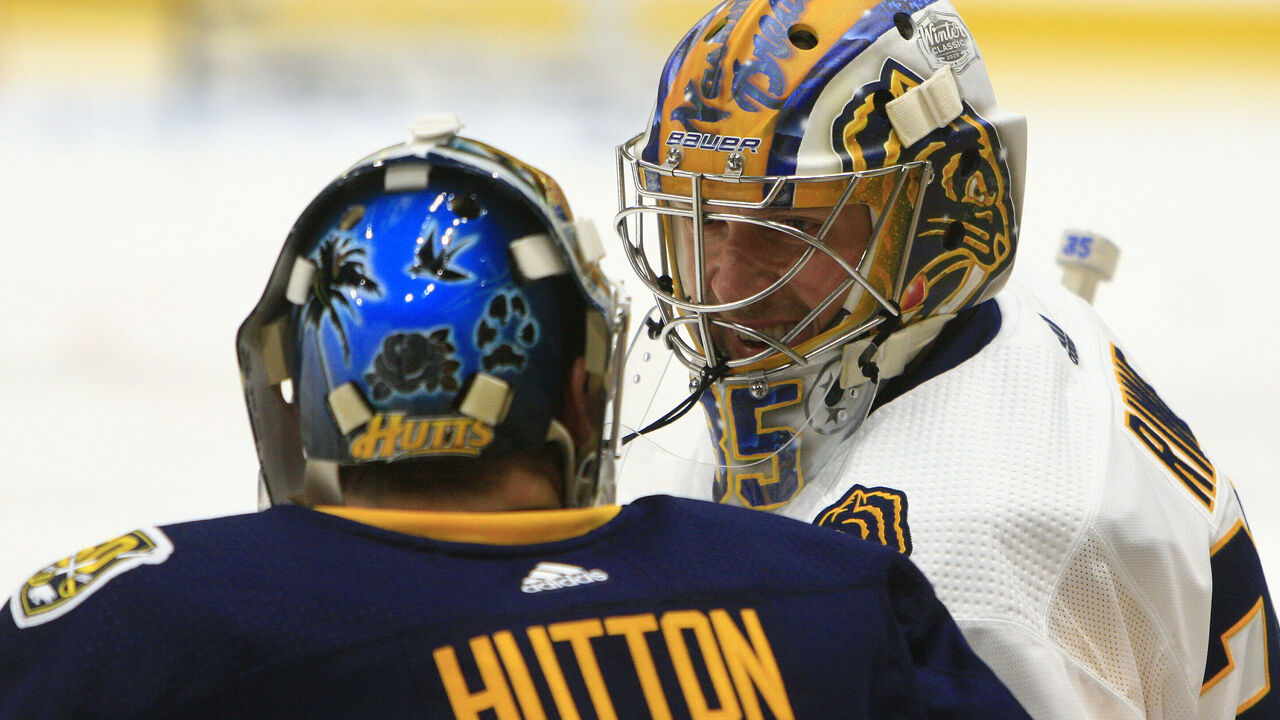
Luck is a factor, too. The early 2010s Predators needed a no-frills backup when Hutton entered the league. Then a staph infection to starter Pekka Rinne created an opening for extra starts and time with goalie coach Mitch Korn.
"The Preds want to re-sign you," Rinne told Hutton over a pregame meal late in the backup's first season in Nashville.
"Oh really? How do you know?" Hutton replied.
"Well, David Poile called me last week," Rinne said of the longtime Preds GM, "and he asked if I wanted to play with you again."
Poile wouldn't have called Rinne if Hutton wasn't playing well enough to justify a one-way contract. But GMs and coaches want a happy starter, and like in most professions, relationships matter. If a backup's save percentage is in the same range as his peers, familiarity and trust can be the tiebreaker.
"The top 10, 15 guys in the world are just better than everybody else," Hutton said. "The rest? It's more of a matter of getting in. Because once you're in, if you have the right mindset, you basically have to play your way out."
John Matisz is theScore's senior NHL writer. Follow John on Twitter (@MatiszJohn) or contact him via email (john.matisz@thescore.com).